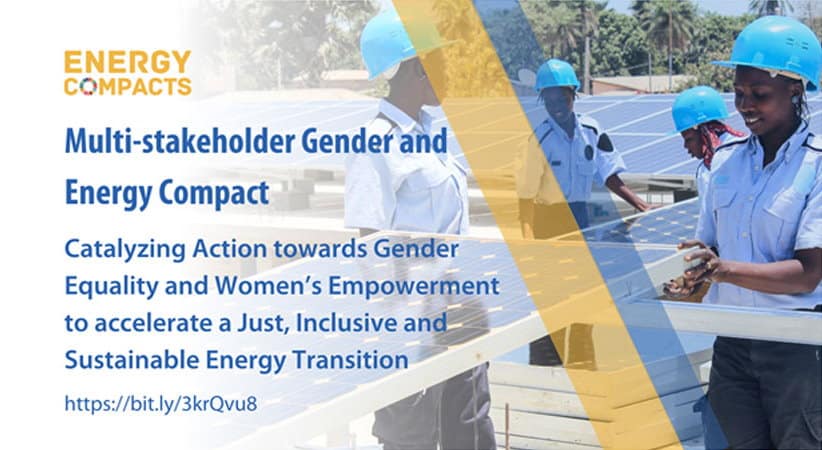
In the framework of the United Nations Climate Change Conference, South Asia Women in Energy (SAWIE) partnered with the United Nations Industrial Development Organization (UNIDO), ENERGIA International Network on Gender and Sustainable Energy (ENERGIA), and the Global Women’s Network for the Energy Transition (GWNET) to co-host an event at the UNFCCC SDG7 Pavilion to catalyze action towards gender equality and women’s empowerment.
Moderated by Mary Robinson, former President of Ireland, the COP side event “Enhancing gender equality and women’s empowerment to accelerate a just, inclusive and climate resilient energy transition” presented the Gender and Energy Compact and its multiple signatories. This compact, developed in the realm of the UN High Level Dialogue on Energy, is one of its kind in putting women and gender equality at the center of achieving SDG7: Ensure access to affordable, reliable, sustainable and modern energy for all.
Women are in the frontlines of energy access, as energy consumers, as household energy managers and as energy providers. At the same time, women have less access to energy, suffer most from energy poverty and energy services than men and the energy space is still male-dominated. If the world is to reach SDG7 by 2030, women must be part of the energy transition at all levels. The Gender and Energy Compact commits to supporting and accelerating action towards a just, inclusive and gender-equal energy transition.
International bodies such as the African Development Bank, UN Women and the UN Environment Programme as well as the International Renewable Energy Agency, the Private Financing Advisory Network, the International Institute for Sustainable Development, the Clean Cooking Alliance, REN21, the SDG7 Youth Constituency and Student Energy are among the non-state signatories besides SAWIE.
The coalition aims to take action towards a just, fair and inclusive transition addressing the following areas:
Click here to watch the statements and commitments made by the Gender and Energy Coalition.